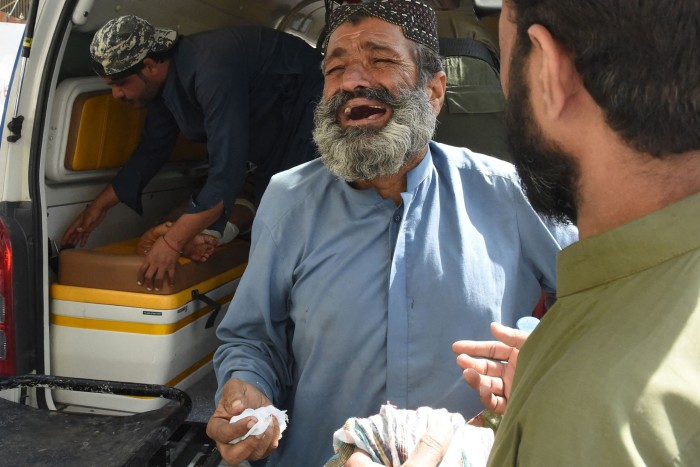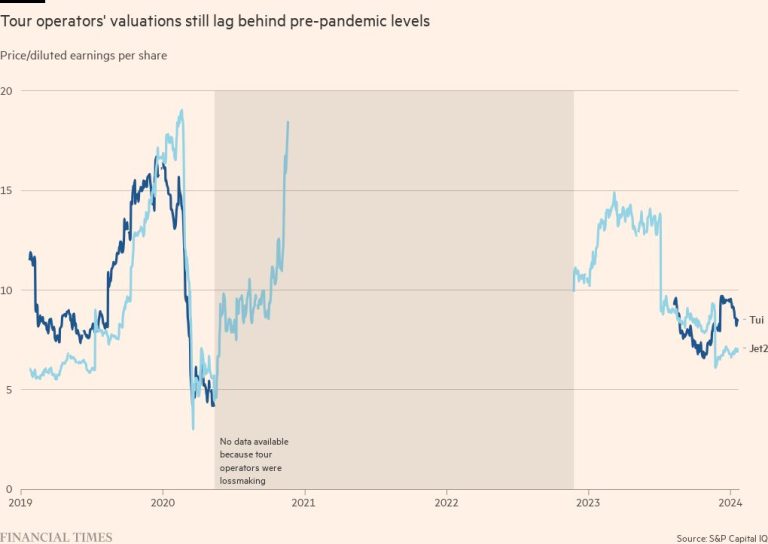Receive free Pakistan updates
We’ll send you a myFT Daily Digest email rounding up the latest Pakistan news every morning.
Suicide bombers killed at least 56 people and injured scores of others on Friday in three separate bomb attacks in Pakistan’s volatile border region near Afghanistan.
The attacks will heighten security concerns in Pakistan as the nuclear-armed South Asian nation of 220mn people grapples with escalating economic and political crises.
While there was no immediate claim of responsibility, Pakistan security officials said the bombings resembled other attacks carried out by Afghanistan-based Islamist groups.
The largest death toll of Friday’s attacks was in the insurgent-prone western province of Balochistan, where at least 52 people were killed as they gathered to celebrate the birth anniversary of the Prophet Mohammed.
According to witness accounts cited by local Pakistani television channels, a lone suicide bomber rushed into the crowd and blew himself up.
The other two suicide attacks were on a mosque and a police station in a remote area of the north-western province of Khyber Pakhtunkhwa. According to initial accounts, at least four people were killed. However, government officials warned the death toll could rise as at least 13 of those injured were in critical condition.
Friday’s bombings were the latest in a series of attacks that have caused serious casualties this year. More than 100 people, mostly policemen, were killed in a February attack on a mosque within the compound of the police headquarters in Peshawar, a city in Khyber Pakhtunkhwa.
In July, at least 54 people were killed when a suicide bomber targeted an election gathering in Khyber Pakhtunkhwa by a pro-Taliban group with roots in the region.
The attacks have come as Pakistan suffers a sliding economy and deepening political uncertainty. In recent months, a government push to dismantle the party of opposition leader and former prime minister Imran Khan has fueled tensions. Khan himself is in jail on corruption charges that he strongly denies and which his supporters say are politically motivated.
Ayaz Amir, a former member of parliament and political commentator, said terrorist attacks now posed the most serious threat to Pakistan’s future.
“The kind of attention that should be given to this threat is perhaps not being given because those in command are distracted by so many other things,” he said. “For them. . . “The enemy is the internal political enemy.”
In recent weeks, senior government officials have said Islamabad has conveyed private warnings to Afghanistan’s Taliban rulers, encouraging them to restrain anti-Pakistan militants based in the central Asian country.
But they said a mix of a lack of capacity and determination on the part of the Taliban appeared to have left room for militants to operate.
“The Afghan Taliban have told Pakistan that they are totally against any threat to Pakistan coming from their country,” said one senior government official. “But as you can see, the threat to Pakistan is continuing to come from there.”












+ There are no comments
Add yours